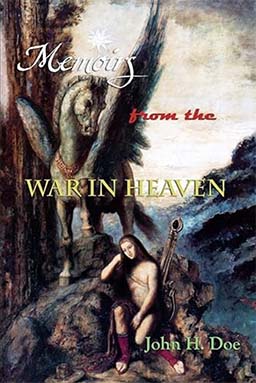Descartes said that it is useful at some point in the history of our minds to doubt all things. He actually didn’t go far enough, in that “I think therefore I am” lends, for its own purpose, a certainty to basic logic. Logically, if I were not, then I could not be thinking. Substantively, as far as we are used to very fundamental things behaving, it is irrefutable. One might think someone daft, in fact, if he were to say that such a reliance on logic is in any way deficient. But if we do not hold that this is sure, that things could possibly behave in ways they never have, even if not in any case we have studied, we come upon a very interesting viewpoint. It is to say that we do not notice that miracles happen every day, simply because they happen every day.
Let me explain. If we do not take for granted things holding together: solidity, cause and effect, time itself: we may begin to see how awesome is the most common of things. Try it. Look at the basic building blocks that you may perceive about the universe. Things we do not in any case doubt that they could fail. It may be difficult: these miracles happen every day, they sustain us hour by hour, second by second. How magnificent the verymost mundane. If you begin to perceive how awesome are the most common experiences, you begin to spy the mystery of the God who is love. The very fact that there is such a thing as quality that may be felt: that there is feeling at all! We may begin here finally to make sense of things. And therefore, to wonder.
For we are born wired in the ways of space and distance, and the ordering and passage of time. We are born knowing an astounding number of things. How is it we first grasp at anything with our hand? The knowledge of sending out the correct signal from the mind, we are given. How is it that we imitate a sound we hear? Such correlation is an amazing thing, not one to simply take as standard issue. To think of one thing as tasting different from another, to look and to comprehend size, more than one vs. the one; spectacular is such faculty.
Now this is beyond astounding, too: we are born knowing how to learn. Anyone who knows what it takes to teach our machines to do the most rudimentiary form of learning will tell you that it is no small thing. No, indeed. And in that vein, pleasure and pain we are born knowing, too, born comprehending, no less. It doesn’t even require the learning, the tools we need to learn other things. Play and boredom, too: how we understand what to pursue in the courses we take; also given us, a higher form of pleasure and pain. They are a higher form of abstraction, like existence itself, known only by the things that exist: play only in terms of the games that invoke that sensation, “fun”. All these are given you.
The question is not, “what do we know?”, but “what can we forget?” Can we truly forget the notions of time and space? Can we forget being? For if we truly wish to do as Descartes advised, we must forget these things. Let us to forget functioning of any sort: can we do that? Perhaps that is the key. This is to doubt the logic of the very of mundane, that logic which allows one to be certain that when one says, “I am”, he cannot be refuted. Let us then be able to refute that, to think in a situation where nothing makes sense, and maybe we can go deeper down the rabbit hole than Descartes himself thought it went. And then perhaps we may worthily approach that lesson that Jesus Christ told me, while I was in the pit: “Work is magic.”


